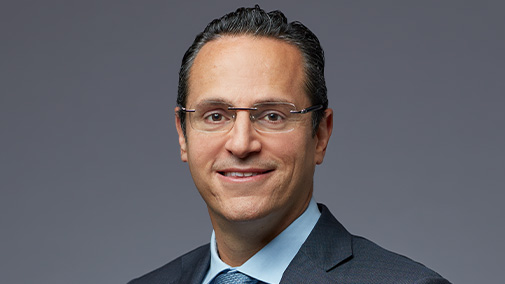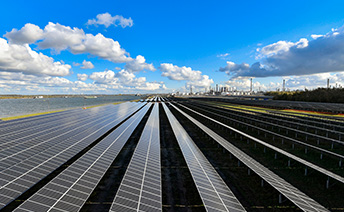Message from the Chief Executive Officer

Chief Executive Officer
This is Shell’s first Climate and Energy Transition Lobbying Report, which gives details of our lobbying in 2022 and includes our review of industry associations. It is another step towards more transparency around Shell’s lobbying related to climate change and the energy transition, and I hope it will help to promote further transparency in our industry.
The importance of lobbying transparency was highlighted to me when I attended the UN Conference of Parties (COP27) in Egypt as an observer last November. Companies and others must be open about which government policies they are supporting.
Shell’s lobbying reflects our belief that society must achieve net-zero emissions by 2050. The most recent report by the Intergovernmental Panel on Climate Change, and our own Energy Security Scenarios, underline the need for urgent action.
Today, around 90% of global emissions are covered by countries’ commitments to achieve net-zero emissions. Now governments must turn those commitments into action. There are signs of progress. The European Union’s REPowerEU plan, and the Inflation Reduction Act in the USA, for example, provide strong support to renewable energy and decarbonised hydrogen.
Towards net zero
Our advocacy, directly to governments, and indirectly through industry associations and coalitions, is a key part of our Powering Progress strategy and our target to become a net-zero emissions energy business by 2050. With the right policy and regulatory conditions, we can profitably increase our investments in the energy transition including in wind and solar power, decarbonised hydrogen, charging for electric vehicles and carbon capture and storage.
The energy transition will also require significant changes to infrastructure, which is why we are calling for governments to encourage investment in electricity grids in Europe and the USA. Policies aimed at increasing demand for low- and zero-carbon energy are just as essential. For instance, we support the European Union’s proposed targets for the use of renewable hydrogen in industry and transport.
In this report, we give details of how we have lobbied on these and other issues related to climate and the energy transition in 2022. We also show our wider advocacy, including our support for policies and action aimed at securing energy supplies, and reducing methane emissions.
In our discussions with European policymakers, we highlighted the importance of securing new supplies of liquefied natural gas to ensure enough energy to power homes and businesses in coming years, for example.
Industry associations
This is the fifth year that we have reviewed our memberships of industry associations to assess whether they are consistent with our views on climate action. Our reviews have led to constructive engagements with our industry associations, and we have seen positive results from these engagements in recent years. In the USA, for example, we have seen some associations change their positions to support carbon pricing and the direct regulation of methane emissions.
This year, we have reviewed 39 associations. I am encouraged to see that around three-quarters are aligned with our global climate and energy transition-related policy positions. While we have seen some change in the remaining associations, we want to see more – and at a faster pace. In this report, we give information about where we have different positions to our industry associations. In some cases, we have lobbied governments directly and through coalitions to support our positions.
I am writing to the 10 industry associations where we have found some misalignment to call for changes to some of their positions. For example, we would like some associations to step up their advocacy in support of net zero by 2050 and reductions in methane emissions. We look forward to engaging with them in the months ahead.
Working together
The challenge of climate change involves different groups, with different views of the problems and solutions. I see governments grappling with this challenge, with its complexities and sometimes contradictions. The world needs fossil fuels today to provide secure energy yet also needs to invest heavily in renewable energy and infrastructure.
Our strategy is to become a net-zero emissions energy business by supplying our customers with the energy they need today and for tomorrow. That means providing fuel for today’s cars, while supporting the phasing-out of petrol and diesel cars in regions such as Europe, and an increase in electric vehicles and charging infrastructure. It will take dialogue, collaboration and transparency for the world to achieve net-zero emissions. I hope this report will encourage some of that.
Wael Sawan
Chief Executive Officer









